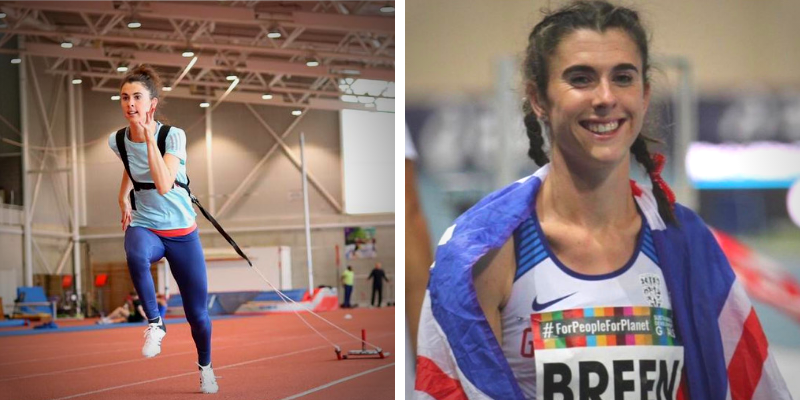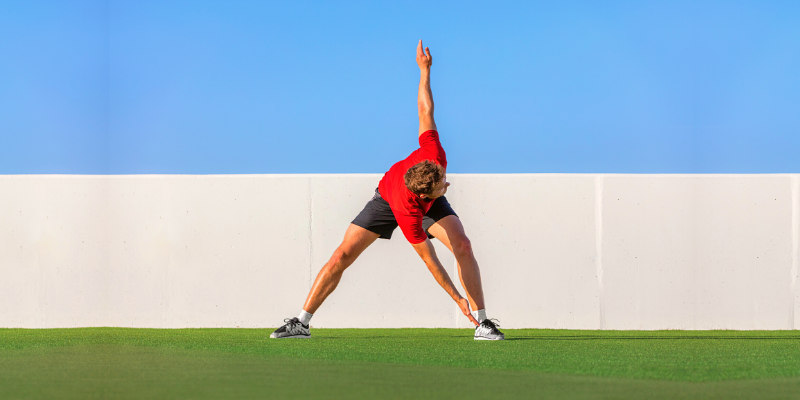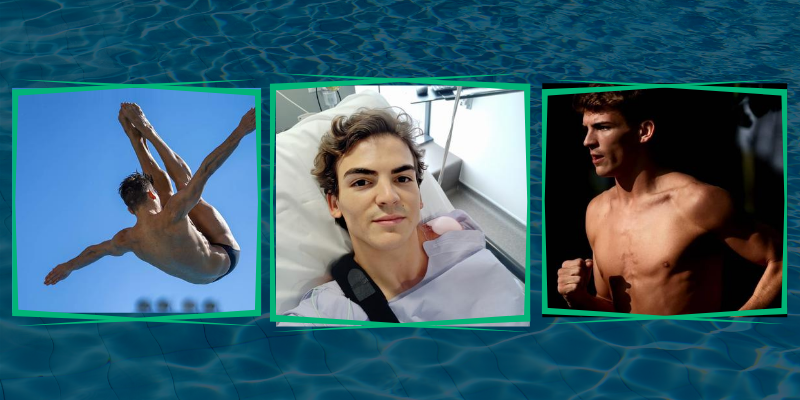After winning gold for Wales in the long jump at the 2018 Gold Coast Commonwealth Games, Livvy now has her sights firmly set on an individual medal at the Olympic Games in Tokyo next summer. She is also one of NuroKor’s newest ambassadors, using her device regularly on her legs to speed up muscle recovery.
How did you get into athletics?
I was diagnosed with Cerebral Palsy at the age of two and always found it easier to do things quickly. So from a very early age, I ran everywhere! On my first school's sports day, I won a running race which was an amazing feeling, as I found school really difficult, and still fell over a lot when I was little. From that point, I fell in love with running, as it was something I knew I was good at. I joined the local athletics club and then when I was 13 I joined the City of Portsmouth AC and started training and running for the club.
When I was 15 I went to a British Athletics Disabled Talent Day and loved it, and then went on to be classified nationally and internationally as a disabled athlete. Then at just 16 I found myself competing in front of 80,000 people at London 2012 and I haven't looked back since!

What do you love about your sport and competing on the international stage?
I have always loved running and still do. I love feeling light on my feet and, powerful when I take off. Nothing makes me happier! As I have become a professional athlete, I really enjoy training and improving my technique. There is nothing quite like the thrill of competing in front of a large crowd. In disabled sport, the crowds are often quite small, but when you get to the Paralympics or the Commonwealth Games the crowds are really big.
I love competing in that exciting atmosphere and hearing the crowds. One of my other favourite events in the athletics calendar is the Anniversary Games - I love going back and competing in the London Olympic Park.
How does your usual day look like during competition season?
In a normal year, my season can be quite long. I tend to start in May at the Loughborough International (which is now my home track), and then end at a big event like a World Championships, which last year was in November as it took place in Dubai. This means I need to be careful and make sure that I pace myself over the season.
During the winter I tend to get bigger and train heavier (that's when all the hard work is done!) During the [Summer] season, I will get lighter and concentrate more on sprinting and technical things.

On a normal day in the season I will have a protein breakfast, typically scrambled eggs, complemented by some carbs such as wholemeal bread. I like to train in the morning so I will often start at around 10 am. I concentrate on different things each day during training. So for example,
Friday is always my technical sprinting and jumping day. It will be an intense session but be over in about 3 hours. As I am based out of Loughborough, I am lucky enough to be able to have treatment after every training session.

After training, lunch will be protein-based as most of my meals tend to be, especially during the season as I like to be light. When training is over for the day I may spend some time looking over videos from the session to see where improvements can be made and do some meal prep for the following day.
A lot of my friends will be at the track so I spend some time with them before going home. I live with students at the university so will tend to hang out with them in the evening. I will always have early nights during the season and never really go out (unless it is for an early dinner somewhere healthy!) I am really strict with myself during this period and look forward to a break when I can go out and enjoy myself properly.
How has the current global situation impacted your training?
When Covid-19 struck I was actually already at home with my parents as I had a niggly injury. We took the decision that I would stay at home with them for quarantine. My Dad has a well-equipped gym at home so I have been incredibly lucky, and a couple of miles from home there is a short outdoor track which I have been able to use. It has been a godsend as I have been able to train and send my coach's videos. Facilities in Loughborough are re-opening but for the time being, I am going to stay at home and keep doing what I am doing.
As well as training I have done a course to teach kids yoga and I am learning sign language. I have also been getting my mum fit and going on lots of walks and bike rides - I am not very good at sitting still!

What is your proudest moment from your career?
It is hard to pick one! Winning a bronze medal as part of the relay in 2012 was amazing - but I was so young and it all happened so quickly, I don't think I properly appreciated it.
I had a bad Rio Paralympics for one reason and another and came 12th in the long jump and 7th in 100m. I was devastated and made some big changes to my training and moved to Loughborough. The move really paid off and less than a year later I found myself winning the long jump at the World Championships back in the Olympic Park - that was amazing and a very proud moment.
However, the very best moment for me was winning gold for Wales in the Commonwealth Games in Australia. The whole trip was amazing and to jump a Personal Best in my final jump was just awesome. I'm not sure I will ever top that!

If you weren't an athlete, what would you be doing?
I really enjoy working with children and I obviously love sport so maybe I would coach children - I really like the idea of coaching disabled children in the future.
What injuries have you had and how did/do they affect you?
I have had quite a few injuries, not surprisingly as I have been doing this for so long now! My worst injury was after the Commonwealth Games when I had tendinopathy in my knee and it took absolutely ages to get better. It meant I couldn't jump during the 2018 season. It was so annoying. I was still able to run, and I was so happy to win a bronze in the 100m at the European Championships.
How does NuroKor help you?
I use it mainly for recovery, and it is the perfect tool for after my plyometrics or heavy gym sessions. I use it on my legs, specifically my quads. I also find it really good for my shoulders. It is so easy to use and it is great that it is portable. I have been impressed by how effective it is - I am loving it!

What are the goals for you in the near future?
I would absolutely love to win an individual Paralympic medal. I am gutted that the Games have been postponed until next year but that is definitely my aim for 2021.
You can follow Livvy’s journey on Instagram @livvy_breen.
To keep up to date with NuroKor athlete news and other stories follow @NuroKor on FB, Instagram & Twitter.



